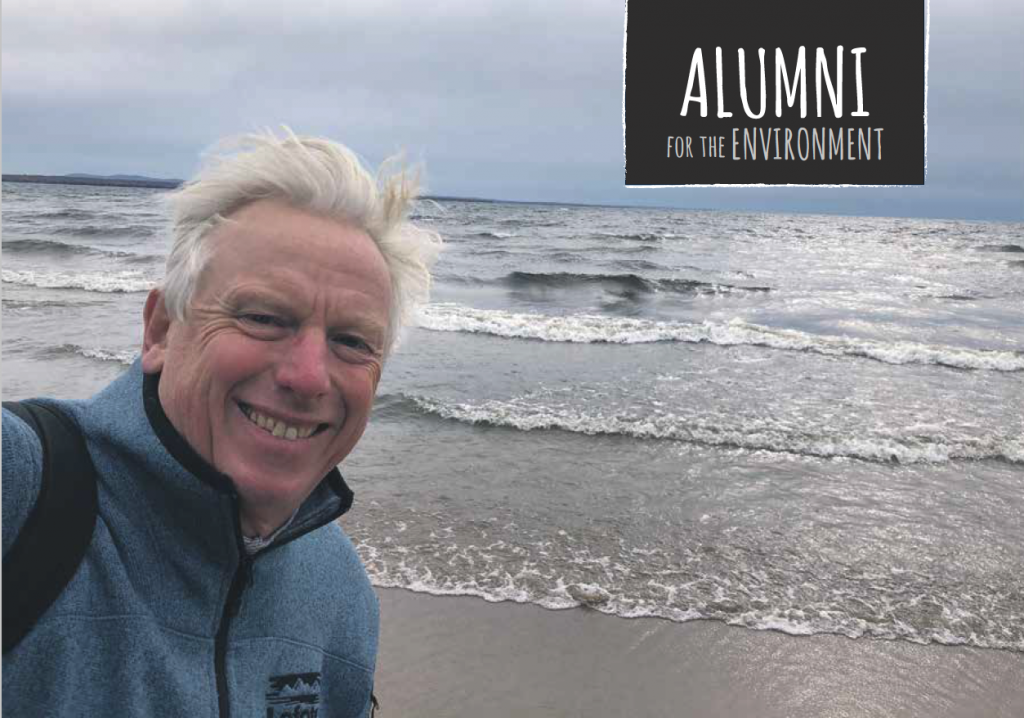
David Miller ’77 places a high value on personal toughness, both in building character and in building a career to advocate for the environment.
One would need to be tough to accomplish what David has done. He built a nine-year practice as an employment, immigration and shareholder rights lawyer in Toronto, then walked away from it to run in the high-profile, no-holds-barred world of Toronto municipal politics, winning three elections as a city councillor and another two as mayor of Canada’s largest city for seven years.
He has since continued legal work around investment in wind and solar energy, headed WWF-Canada, the Canadian arm of the World Wildlife Fund, and since 2017 has served as the managing director of international diplomacy for C40 Cities Climate Leadership Group, an organization of the mayors of the world’s largest cities dedicated to avoiding climate change by making use of the legislative and spending power of local government. (The organization’s original 40 cities of 3 million-plus people have now grown to nearly 100.)
David’s tough nature emerged early. His father passed away when he was young. Brought to Canada by his British mother at age nine after a modest upbringing in a small town near Cambridge, UK, he earned a scholarship to Lakefield College School. On his inaugural Algonquin canoe trip in Grade 9, the first day bestowed iconic sunny Canadian autumn splendour. By morning, Canada showed its other side—cold rain that turned to snow—and David had packed no rain gear.
“It was so cold that on portages I wouldn’t stop—I was afraid I’d freeze,” he recalls. “The headmaster came to me and said, ‘You’re tough, Miller’ and it gave me so much confidence. It was the first time I felt Canadian.”
David’s accomplishments are legion—arguing complex cases before the Ontario Superior Court, nine years as an activist councillor and seven more as mayor, dealing with aggressive political opponents and media, and taking up and running with environmental causes. He earned his spurs, obtaining an economics degree from Harvard University, a law degree from the University of Toronto and working his way from articling student to partner at the prestigious Aird & Berlis law firm.
But there was always that element of toughness—of inner determination—that drove him to such high achievement. When he won his second election as mayor, he finished the campaign by attending 44 campaign events in 44 hours. “I basically outworked everyone else,” he recalls.

He took the same approach to law and advocacy. “When you practise law for nine years, you learn important things like preparation,” David says. “You have to know every detail of the case and the law. Arguing procedural motions, the judges have heard everything. The only way to impress them is by being super-prepared. You cannot use bafflegab. Eloquence, yes, but you have to be prepared, succinct, and persuasive with the facts. The same applies to politics, speeches, or public advocacy. People say they enjoy my talks because what I say is real. The lesson I have learned over the years is that it’s the substance that matters.”
As mayor of Toronto, he was constantly in battles to protect greenspace, reduce the carbon footprint and balance social inequities. “We were so activist that every council meeting was contentious,” he recalls. He is most proud of extending public transit service, establishing a priority neighbourhoods strategy to fund underprivileged areas and, most of all, developing the first climate action plan for a major city—“and the best one,” he adds.
Employed since 2017 as a driving force behind C40, which counts the leaders of cities such as New York, London, Beijing, and Jakarta as well as Toronto, Montreal, and Vancouver among its members, he is helping to negotiate and promote ways to meet the organization’s goals of holding the global average temperature rise to less than 1.5C. With cities accounting for more than 70% of greenhouse gas emissions, the potential impact is huge for the transit system electrification, green building requirements and cap-and-trade carbon emission systems that C40 cities are adopting. “It meets all my values on human rights, equity, and climate-change mitigation,” David says.
While he has come a long way and a long time has passed since that first Algonquin canoe trip, David still feels the connection to the outdoors that Lakefield instilled—and it continues to inspire him. “That first one was really, really hard, but I loved it,” David says. “Most years, I still do an Algonquin trip.” It’s a good reminder of the rewards of hard work and a tough constitution.
Written by: John Southerst
